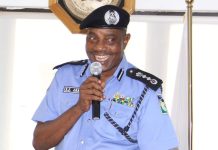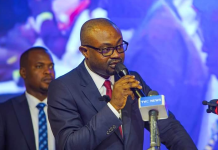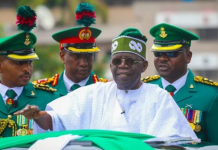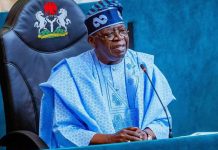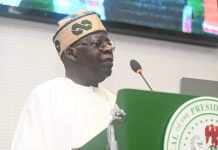Nigerians across the country are heading to the poll to elect the successor of outgoing President Muhammadu Buhari today.
Although they are eighteen political parties that have field candidates, it is believed to be a four-horse race between Peter Obi of the Labour Party; Atiku Abubakar, Peoples Democratic Party’s flag-bearer; Bola Tinubu of the ruling All Progressives Congress and Rabiu Kwankwaso, candidate of the New Nigeria Peoples Party (NNPP).
Other presidential candidates and their parties are Christopher Imumolen (Accord), Hamza Al-Mustapha (AA), Omoyele Sowore (AAC), Dumebi Kachikwu (ADC), Yabani Sani (ADP), Peter Umeadi (APGA), Princess Ojei (APM), Charles Nnadi (APP), Sunday Adenuga (BP), Felix Osakwe (NRM), Kola Abiola (PRP), Adebayo Adewole (SDP), Ado Ibrahim Abdulmalik (YPP) and Dan Nwanyanwu (ZLP).
As the most keen in Nigeria’s contemporary political history, the election is the seventh since the return to democracy in 1999 and the winner will govern for the next four years after being sworn in on May 29, 2023.
Nigerians will also decide the political fate of over 4,000 candidates jostling to be elected federal lawmakers today. While about 1,100 are gunning for 108 out of the 109 seats in the Senate, a total of 3,057 candidates are contesting for the 360 seats in the House of Representatives. Election will not hold in Enugu East Senatorial District until 11 March because of Wednesday’s murder of the candidate of the Labour Party, Oyibo Chukwu.
Winners of the national assembly elections in the bi-camera legislature will be inaugurated in June as members of the 10th session.
According to the Independent National Electoral Commission (INEC), 93.5 million Nigerians registered to vote in the general election but a little over 87 million, who picked their Permanent Voters Cards (PVC), will actually participate in the poll. The voters, spread across the 36 states of the federation, 774 local government areas and 8,809 wards, will exercise their franchise in 176,846 polling units.
A total of 1.5 million people will serve as agents for the 18 political parties in the election.
Apart from deploying thousands of ad hoc staff, with the NYSC contributing about 200,000 for today’s election, the electoral management body is also deploying new technologies, namely BVAS and IReV, which it believes are rigging-proof and ensure the transparency and credibility of the polls.
The security agencies and the military, on their part, said they are ready to secure the polls. To ensure a peaceful process, they will be deploying close to a million personnel in all the states and FCT with the police alone accounting for over 310,973.
Some other security outfits deploying their personnel are NSCDC (102,000), FRSC (21,783), Nigeria Correctional Service (11,336), NDLEA (9,447), EFCC (350) and Nigeria Immigration Service (21,640).
Already, the political parties and their candidates at both national and subnational levels have signed pacts to ensure a violence-free process.
A total of 229 observer groups comprising 196 domestic and 33 international observers will also be deploying 146,913 observers for the election. Some of the foreign observers are drawn from the European Union, Commonwealth, African Union, ECOWAS, NDI and IRI. Similarly, media organisations and other relevant bodies have been accredited by the election management body to observe the election.
To be sure, today’s general election presents another major opportunity for Nigeria, Africa’s largest democracy, to test the 2022 Electoral Act signed into law by Mr Buhari exactly a year ago on 25 February. The president, at different fora, pledged to bequeath to the country a sustainable democratic culture that will remain lasting.


